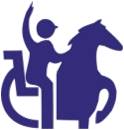
Little Bit Therapeutic Riding Center
18675 NE 106th St
REDMOND, WA 98052
Mailing Address:
18675 NE 106th St.
Redmond, WA 98052
Phone: 425-882-1554 MAKE AN INQUIRY
View our WEBSITE
View our GUIDESTAR PROFILE
EIN: 91-1012131Founded: 1976
View our PHOTO GALLERY
Profile Last Updated April 26, 2023Public Charity

The Guardian Seal of Transparency is awarded annually to recognize an organization's commitment to transparency and accountability by their willingness to make comprehensive data about their programs, horse care practices, and governance available for public scrutiny. The Guardian Seal of Transparency is NOT an endorsement.
Last Updated: July 15, 2023
Little Bit Therapeutic Riding Center has not attained the Guardian designation for 2024.
MISSION & PROGRAMS
Mission:Little Bit Therapeutic Riding Center is a community where horses transform the bodies, minds, and spirits of people with disabilities.
Our purpose is to help participants build skills for independence, improve daily functioning, and overcome physical and emotional health challenges.
Our organization conducts Equine Assisted Services in accordance with the EQUUS Foundation Guidelines on Qualifications of Organizations Conducting Equine Assisted Services (EAS).
Our organization does not provide community outreach and/or public education programs involving horses.
Our organization is directly responsible for the care and shelter of equines involved in our programs.
100% of our total programs and services are equine-related.
Our organization does not CURRENTLY use satellite, overflow, foster, and/or outreach facilities.
Equine Assisted Services (EAS):
Our organization provides the following Equine Assisted Services (EAS):
Therapeutic Mounted Services
Therapeutic Vaulting Services
Therapeutic Unmounted Services
Equine-Assisted Psychotherapy/Counseling (Mental Health)
Equine-Assisted Occupational Therapy/Physical Therapy/Speech-Language Pathology
Equine-Assisted Learning involving Personal and/or Professional Development
16: Total number of Equine Assisted Service Providers at Dunmire Stables
1. Abigail Crickmore
FACILITY PARTICIPATION:
Dunmire Stables
RELATIONSHIP: Independent Contractor
SERVICES PROVIDED:
Equine-Assisted Psychotherapy/Counseling (Mental Health)
DEGREES, LICENSES AND/OR CERTIFICATIONS
LMHC, CCTP
2. Casey Mendoza
FACILITY PARTICIPATION:
Dunmire Stables
RELATIONSHIP: Employee
SERVICES PROVIDED:
Equine-Assisted Occupational Therapy/Physical Therapy/Speech-Language Pathology
DEGREES, LICENSES AND/OR CERTIFICATIONS
State of WA Licensed Occupational Therapist
MS, OTR/L
3. Christina Reyer
FACILITY PARTICIPATION:
Dunmire Stables
RELATIONSHIP: Employee
SERVICES PROVIDED:
Equine-Assisted Occupational Therapy/Physical Therapy/Speech-Language Pathology
DEGREES, LICENSES AND/OR CERTIFICATIONS
State of WA Licensed Occupational Therapist
MOT, OTR/L, C/NDT
PATH Registered Therapist
4. Devon Stone
FACILITY PARTICIPATION:
Dunmire Stables
RELATIONSHIP: Employee
SERVICES PROVIDED:
Therapeutic Mounted Services
Therapeutic Unmounted Services
DEGREES, LICENSES AND/OR CERTIFICATIONS
PATH International CTRI
PATH International RI
PATH International ESMHL
PATH International Region IX Representative
PATH International Mentor
5. Diane Bartels
FACILITY PARTICIPATION:
Dunmire Stables
RELATIONSHIP: Employee
SERVICES PROVIDED:
Therapeutic Mounted Services
Therapeutic Unmounted Services
DEGREES, LICENSES AND/OR CERTIFICATIONS
PATH International CTRI
6. Jenny Slack
FACILITY PARTICIPATION:
Dunmire Stables
RELATIONSHIP: Employee
SERVICES PROVIDED:
Therapeutic Mounted Services
Therapeutic Unmounted Services
DEGREES, LICENSES AND/OR CERTIFICATIONS
PATH International CTRI
7. Joan Myers
FACILITY PARTICIPATION:
Dunmire Stables
RELATIONSHIP: Employee
SERVICES PROVIDED:
Therapeutic Mounted Services
Therapeutic Unmounted Services
DEGREES, LICENSES AND/OR CERTIFICATIONS
PATH International CTRI
BS Recreation and Leisure Studies with Therapeutic emphasis
8. Kelsie McGladrey
FACILITY PARTICIPATION:
Dunmire Stables
RELATIONSHIP: Employee
SERVICES PROVIDED:
Equine-Assisted Occupational Therapy/Physical Therapy/Speech-Language Pathology
DEGREES, LICENSES AND/OR CERTIFICATIONS
State of WA Licensed Physical Therapist
PT, DPT
PATH Registered Therapist
9. Melissa Cope
FACILITY PARTICIPATION:
Dunmire Stables
RELATIONSHIP: Independent Contractor
SERVICES PROVIDED:
Equine-Assisted Psychotherapy/Counseling (Mental Health)
Equine-Assisted Learning involving Personal and/or Professional Development
DEGREES, LICENSES AND/OR CERTIFICATIONS
State of WA Licensed Social Worker
Master of Social Work
10. Sandy Jones
FACILITY PARTICIPATION:
Dunmire Stables
RELATIONSHIP: Employee
SERVICES PROVIDED:
Therapeutic Mounted Services
Therapeutic Unmounted Services
Equine-Assisted Occupational Therapy/Physical Therapy/Speech-Language Pathology
DEGREES, LICENSES AND/OR CERTIFICATIONS
PTA
PATH Registered Instructor and Therapist
11. Sara Vowels
FACILITY PARTICIPATION:
Dunmire Stables
RELATIONSHIP: Employee
SERVICES PROVIDED:
Therapeutic Mounted Services
Therapeutic Unmounted Services
DEGREES, LICENSES AND/OR CERTIFICATIONS
PATH International CTRI
12. Sarah Niwa
FACILITY PARTICIPATION:
Dunmire Stables
RELATIONSHIP: Employee
SERVICES PROVIDED:
Therapeutic Mounted Services
Therapeutic Unmounted Services
Equine-Assisted Occupational Therapy/Physical Therapy/Speech-Language Pathology
DEGREES, LICENSES AND/OR CERTIFICATIONS
State of WA Licensed Occupational Therapist
OTR/L, MS, HPCS
PATH Registered Therapist
PATH International CTRI
13. Sarah Squires
FACILITY PARTICIPATION:
Dunmire Stables
RELATIONSHIP: Employee
SERVICES PROVIDED:
Therapeutic Mounted Services
Therapeutic Unmounted Services
Equine-Assisted Occupational Therapy/Physical Therapy/Speech-Language Pathology
DEGREES, LICENSES AND/OR CERTIFICATIONS
COTA
14. Zoe Trager
FACILITY PARTICIPATION:
Dunmire Stables
RELATIONSHIP: Employee
SERVICES PROVIDED:
Therapeutic Mounted Services
Therapeutic Unmounted Services
DEGREES, LICENSES AND/OR CERTIFICATIONS
PATH International CTRI
PATH International ESMHL
PATH International Mentor
WA State Certified Special Educator K-12
Overview of our programs involved with providing EAS to individuals with special needs:
Our primary programs include Therapy, Adaptive Riding, Equine-Facilitated Psychotherapy (EFP), and Equine-Assisted Learning (EAL).
Therapy (physical, occupational, or speech-language therapy) utilizes the movement of the horse as a treatment tool. Because the horse moves in a three-dimensional pattern like the action of the human pelvis during normal, upright movement, being on horseback helps achieve optimal spinal alignment for participants. Patients receive 30-45 minutes of weekly therapy plus 15-30 minutes of traditional therapy in our treatment rooms. All treatments are provided by a licensed therapist, assisted by one to three volunteers, a trained horse handler, and the horse.
Adaptive Riding focuses on increasing individual riding skills while gaining a therapeutic benefit. The goals set for each rider vary as much as the riders do. The individualized lesson plans consider the rider's physical, emotional, and mental strengths and limitations. Riders receive 60 minutes of weekly adaptive riding time with small groups of three to five riders per class. Each class is led by a PATH International certified instructor, and riders are assisted by one to three volunteers for safety and stability on the horse.
Equine-Facilitated Psychotherapy (EFP) and Equine-Assisted Learning involving Personal and/or Professional Development (EAL) involve partnerships with local mental health therapists to provide services at our facility. Therapists work with a staff equine specialist certified by PATH International. Horses are uniquely suited to this kind of therapy because they are intuitive and will react to behavior patterns and cues that people might miss, allowing the therapists to interact on a deeper level with their participants and address issues that might otherwise go unnoticed.
Research/Medical Use of Equines:
Our organization has never made, and would not ever consider making, equines available for research studies or medical training that involves invasive procedures and/or that which may cause pain or suffering to the equine.
Religious Affiliation:
Our organization does not promote religious education, religious purposes, or a specific religious faith or use donations for religious education or religious purposes; require participants to be of a certain faith; require participation in religious, instruction, activities or services; or require participation in prayer, worship, religious instruction or other religious activities as a condition of receiving social or secular services offered.
Auction Donation:
Our organization has never allowed, or would not consider allowing, an equine to be sold, transferred, released, or otherwise placed into possession of any person or organization that would cause or allow the equine to be sold at auction for slaughter.
Our Programs/Activities that are not equine-related and/or involving animals other than equines:
Our focus is on Therapy, Adaptive Riding, Equine-Facilitated Psychotherapy, and Equine-Assisted Learning. We also have one barn cat that is a big hit with the majority of our participants, and we have an Office Dog program as well. Office dogs do not interact with our horses.
POLICIES: ACQUISITION
Our organization acquires horses/equines from the following source(s):
Donation
Lease
Purchase from Owner
Our organization does not acquire horses/equines from the following source(s):
Auction
Kill pen/Feedlot
Return
Surrender
Seizure
Abandonment
Our organization will accept the following:
Geldings
Mares
Not Checked:
Pregnant Mares
Foals
Stallions
Only Stallions to be castrated
POLICIES: INTAKE, ASSESSMENT & TRAININING
Prior to a horse being accepted and/or arriving at the facility, the organization requires the following with respect to the health status of the horse:Vaccination records that have been administered within the last 12 months
If health records are not available or are out-of-date, the owner is responsible for having vaccinations administered.
A current Coggins
If health records are not available or are out-of-date, our veterinarian will administer appropriate vaccinations
A health certificate signed by a veterinarian and dated no more than seven days prior to arrival is provided to our organization either prior to or upon arrival of the equine attesting to the health status of the equine
Prior to a horse being accepted and/or arriving at the facility, the organization has the following policies in place:
The owner of a potential equine is interviewed over the phone or in person prior to seeing the equine
The equine is evaluated at its place of residence
The owner completes an application/contract which constitutes the agreement between the owner and our organization
The owner is financially responsible for the shipping of the equine to and from the organization
Equines are on trial up to 60 days
The trial period may be reduced based on the equine's progress
The trial period may be terminated by either the organization or the owner for any reason
Equines are not taken on trial
Equines are on trial for up to 30 days
Equines are on trial for 60 or more days
During the trial period, the organization accepts total financial responsibility for the care of the equine, including board, feed, shoeing and any necessary veterinary care
During the trial period, the organization accepts financial responsibility for the care of the equine, including board, feed, shoeing and any necessary veterinary care, up to a fixed amount agreed upon by the organization and the owner
During the trial period, the owner/donor is financially responsible for the care of the equine, including board, feed, shoeing and any necessary veterinary care
Following arrival of the equine at the facility, the following is performed:
Physical examination by trained barn staff
Physical examination by a veterinarian upon arrival
Photographs are taken of each equine upon arrival at the facility and kept with the equine's health records
A Henneke Body Conditioning Score or other body conditioning score is assigned
Physical examination by a farrier
Physical examination by a dentist
Coggins test
Blood work other than Coggins
Fecal test
Vaccinations
De-worming
The equine is scanned to check for a microchip
The equine is microchipped if the scan indicates that there is no microchip
Upon intake, the organization has the following quarantine policy in place:
The equine is confined to a designated and separate area for isolation and quarantine at the facility for a prescribed period of time
The equine is confined to a designated and separate area for isolation and quarantine off-site for a prescribed period of time
The equine is not quarantined
The typical length of quarantine is: Up to 10 days
Horses are assessed for following skills and behaviors:
Retrieval from a pasture/paddock
Leading with a halter and lead rope
Temperament, disposition and attitude, such as rated from very calm to very high spirited
Saddling
Bridling
Lunging
Loading onto and unloading off a trailer
Mounting and dismounting
Riding at the walk
Riding at the trot
Riding at the canter
Riding by a beginner and/or unbalanced rider
Tolerance to unusual objects and loud noises
Known vices, i.e., cribbing, biting, kicking, weaving, stall walking, etc
Grooming
Tolerance to multiple handlers at the same time
Jumping
Driving (Pulling a carriage)
Bathing
Clipping
Our organization has the following policies and procedures in place pertaining to the ongoing assessment of horses in its care:
Physical examination by a veterinarian at least annually
The Henneke Body Condition score or other body conditioning score is updated at least annually
Photographs are taken of each equine annually and kept with the equine's health records
Equines at our facility may be treated by an equine chiropractor
Equines at our facility may be treated by an equine acupuncturist
Equines at our facility may be treated by an equine massage therapist
Equines at our facility may be treated by an equine nutritionist
Photographs are taken of each equine monthly and kept with the equine's health records
Our organization evaluates at least annually and maintains a written record of the weight-carrying and workload limitations for each equine that is ridden
Our organization does not evaluate the weight-carrying and workload limitations for each equine that is ridden
No equines are ridden; not applicable
The following variables are considered in determining the weight-carrying and workload limitations for each equine that is ridden:
Equine age, weight, breed, body condition, fitness, balance, health and soundness
Equine conformation to include the top line, length of back, strength and width of loin, bone density (measured by the circumference of the cannon bone just below the knee)
Size, shape, condition and angle of the hooves
Participant weight, height, body proportions, balance, fitness and riding skills as well as behavioral issues and safety concerns
Weight and proper fit of the saddle and other equipment
Duration and frequency of working sessions, as the frequency with which an equine is subjected to maximum weight carrying and/or workload
Nature and pace of work, repetitive or varied, radius of turns, degree of incline and regularity of footing when equine is subject to maximum weight-carrying capacity
Seasonal impact on the equines' workload and weight-carrying capabilities and limitations
Terrain and footing in the working environment
Temperature and/or weather conditions
Our organization does not evaluate the weight-carrying and workload limitations for each equine that is ridden
No equines are ridden; not applicable
Horses provided formal training (groundwork or riding): 2-3 times per week
Additional information about our intake, assessment & training policies and practices:
When we are looking for new horses for our therapeutic riding program, we are looking for sound, healthy, well cared for horses that can be successful in our program. Prior to a new horse coming to our property, we will first review photos and video of the horse, to check its current state of health. We will then go and visit the horse at its current location, during which time we will also check for signs of health of the horse. Prior to coming to the site, the current owner of the horse must provide information on the horse's vaccination record, deworming schedule, and other health/veterinary records as requested. These are reviewed. Should the horse's medical records not be up to date or available, the horse will not be allowed onto our property.
We have the capacity to quarantine horses on property, by isolating a stall and/or paddock should one of our horses be suspect or be known to come down with an illness, for example a virus that may pose a risk to the rest of the herd. This would be set up as needed and following the advice of our veterinary team. As of July 2022, we have implemented a seven-day quarantine practice for new horses.
Horses arriving at our facility will be sound and in good condition so as to be viable horses for supporting our programs. Before arriving, they are checked for their body condition to make sure they are in a healthy range, but we do not formally assign a body condition score at that time.
The Henneke Body Condition scoring system includes specific schedules that do not align to our process. We tape and measure our horses and check their body conditions four times per year. This schedule is not determined by the date of arrival. This is performed by our Equine Nutritional Advisor and is used to provide quantitative information used for tracking our horses' conditions and weights. The following policy is included in our Equine Standards of Care Statement: Horses must be provided with a diet to maintain proper body condition or weight to ensure a body condition score of a minimum of 4, with an ideal range of 4.5-5.5, unless a medical condition or old age is confirmed by a veterinarian to prevent this, despite adequate nutrition.
POLICIES: BREEDING
The organization has the following policies related to breeding and stallions:Our main facility where our organization conducts its programs does NOT breed equines.
One or more of the facilities where our organization conducts its programs, including foster facilities, breeds equines
One or more of the facilities where our organization conducts its programs, including foster facilities, are permitted to house stallions
POLICIES: EUTHANASIA
The organization has the following policies related to euthanasia:Our organization will never have an equine euthanized for space
Our organization will have an equine euthanized upon the recommendation of the veterinarian if the equine is a threat to itself, other equines, or people
Our organization will have an equine euthanized upon the recommendation of the veterinarian after all reasonable treatment options have been explored
Euthanasia is done on site when possible to decrease trauma from transport
Euthanasia is done at the veterinarian's facility
Disposal of the carcass is handled within 24 hours
Our organization will never have an equine euthanized under any circumstances
The following are authorized to administer the procedure for your organization in accordance with state laws:
Veterinarian
A certified euthanasia technician
Senior staff with appropriate training
Employee of animal control shelter or humane society with appropriate training
Veterinary student under the supervision of a licensed veterinarian
Not applicable. Our organization prohibits euthanasia under any circumstances
POLICIES: RE-HOMING
View Re-homing AgreementOur organization has the following re-homing (adoption/purchase) policies and procedures in place:
All potential adopters/purchasers complete a written contract which constitutes the agreement between our organization and the new owner
Our organization will only re-home an equine to a location where another equine resides
Potential adopters/purchasers must visit our organization and be observed with the equine on site
The distance of a potential adopter/purchaser's home from our facility is a consideration for when re-homing an equine
Our organization conducts a site visit of the adopter/purchaser's facility before the transfer of the equine to the adopter/purchaser's facility
Our organization does NOT re-home an equine to first time equine owners
Potential adopters/purchasers are encouraged to do a short-term, on-site foster with the equine
Adopters/purchasers are NOT required to provide updates
Our organization has the following policies and procedures related to horses that need to be retired, are no longer able to contribute to the mission of the organization, and/or are no longer manageable:
Equines may remain at our organization for their lifetimes
Equines may be found suitable homes by our organization
Equines may be returned to their owners
In the case an equine is unmanageable and demonstrates repeated dangerous behaviors, the equine may be euthanized upon the recommendation of the veterinarian
In the case an equine is unsound and/or unhealthy and cannot be treated to relieve suffering, the equine may be euthanized upon the recommendation of the veterinarian
The organization will accept financial responsibility for equines in the current care of the organization that need to be retired or are no longer able to contribute to the mission of the organization if all alternatives have been explored to find the equine an appropriate placement and space is not available for the equine to remain at the organization.
Equines may be sent to auction
If a suitable home cannot be located within 12 months, the equine may be euthanized
The uploaded Re-homing agreement includes the following re-homing (adoption/purchase) statements:
The agreement reflects that any individual or organization in possession of the equine as of the date of the agreement and any time thereafter is bound to not sell the equine at auction for slaughter or allow the equine to be sold, transferred, released, or otherwise placed into possession of any person or organization that will cause or allow the equine to be sold at auction for slaughter.
The agreement states that re-homed equines cannot be bred
The agreement states that should the adopter decide to re-home the equine, our organization must be notified of the name, address, and telephone number of any individual or organization intending to take possession of the equine for any reason prior to the equine being placed into the possession of such individual or organization.
The agreement states that the re-homed equine CANNOT be sold, adopted, transferred, auctioned, released, given away, or otherwise placed into the possession of another individual or organization under any circumstances and must be returned to our organization should the adopter decide that he/she is no longer able, or no longer wishes, to care for the equine.
The agreement states that should the adopter decide to re-home the equine, our organization must grant approval of any individual or organization intending to take possession of the equine for any reason prior to the equine being placed into the possession of such individual or organization, including being provided written notification of the name, address, and telephone number of any individual or organization intending to take possession of the equine for any reason.
The agreement states that the terms of our organization's agreement will be binding on any future individual or organization taking and/or in possession of the equine for any reason.
The agreement states that if there is any breach of contract the equine must be returned to our organization
The agreement states that our organization reserves the right to make unannounced visits
The agreement states that our organization reserves the right to make scheduled visits
The agreement states that adopters/purchasers can return an equine to our organization free of charge
The agreement states that adopters/purchasers can return an equine to our organization for a fee
The agreement states that adopters/purchasers are required to provide updates (photos, vet records) for one year
The agreement states that adopters/purchasers are required to provide updates (photos, vet records) for two years
The agreement states that adopters/purchasers are required to provide updates (photos, vet records) for three or more years
None of the statements are included.
The organization does not re-home equines under any circumstances; our organization retains custody of our equines and ensures care of the equines for their lifetimes.
Our organization does not have the authority to transfer ownership and/or does not own any of the equines involved with our programs.
Our organization requires references from the following:
Not applicable or no references required.
Veterinarian
Farrier
Personal/Other
Transfer of ownership occurs: Immediately (at the time of adoption/purchase) or less than one year
The average equine re-homing (adoption/purchase) fee received by your organization:
Less than $200
Additional information about our rehoming policies and practices:
Once a decision is made to retire a horse from the program, care will be taken to place that horse in a suitable home with knowledgeable individuals able to provide appropriate care. Finding that home will take priority over selling the horse. Horses may be rehomed for $1 if this is the best option.
Should physical or behavioral issues dictate that a horse cannot safely be rehomed, Little Bit will determine if placement in a full care facility with frequent staff visits, or humane euthanasia is most appropriate. Horses retired from the program will not be taken to any type of auction.
EQUINE CARE & SHELTER/FACILITY INFORMATION
Total facilities at which our organization cares for and shelters horses used in our programs: 1Our organization does not CURRENTLY use satellite, overflow, foster, and/or outreach facilities.
Dunmire Stables
18675 NE 106th St Redmond WA 98052
Contact: John Smith, Facilities Manager
Contact's Phone: 425-882-1554
Contact's Email: jsmith@littlebit.org
Currently operational
Total number of horses/equines currently involved with your programs, under your care, and/or owned by your organization at this facility: 28
Total number of horses at this facility INCLUDING those counted above: 28
Maximum capacity of horses at this facility: 40
Does your organization own, lease or use a part of this facility? Own
Provide the contact information for the individual or organization responsible for investigating abuse in the county where the facility is located, including mailing address, email address, and phone information.
Regional Animal Services of King County (RASKC) 21615 64th Ave. S. Kent, WA 98032 206-296-7387 General email: pets@kingcounty.gov Tim Anderson, Head of the RASKC Tim.Anderson@kingcounty.gov
Does your organization conduct Equine Assisted Services (EAS) at this facility in accordance with the EQUUS Foundation Guidelines on Qualifications of Organizations Conducting Equine Assisted Services (EAS)? Yes
Total number of Equine Assisted Service Providers AT THIS FACILITY, including instructors, specialists, therapists, counselors, coaches and/or facilitators (full-time, part-time, volunteer, independent contractors, and/or providers accompanying clients) that conduct Equine Assisted Services (EAS) in accordance with the EQUUS Foundation Guidelines on Qualifications of Organizations Conducting Equine Assisted Services (EAS) AT THIS FACILITY: 16
Equine Assisted Service Providers Assigned to this Facility: (see Equine Assisted Service Provider Section below for details)
1. Abigail Crickmore
2. Casey Mendoza
3. Christina Reyer
4. Devon Stone
5. Diane Bartels
6. Jenny Slack
7. Joan Myers
8. Kelsie McGladrey
9. Melissa Cope
10. Sandy Jones
11. Sara Vowels
12. Sarah Niwa
13. Sarah Squires
14. Zoe Trager
16 -> 14 - The total number of Equine Assisted Service Providers entered for this facility does not match the number of Equine Assisted Service Providers assigned to this facility under in the Equine Assisted Service Provider Section
Dunmire Stables
Veterinarian Information
Veterinarian: Bruno Karam/Brandon King
Clinic Name: Pilchuck Veterinary Hospital
11308 92nd ST SE
Snohomish WA 98290
Phone: 425-308-8451
Overview: Dunmire Stables (*Main)
Total number of horses/equines currently involved with your programs, under your care, and/or owned by your organization at this facility: 28
Total number of horses at this facility INCLUDING those counted above: 28
Maximum capacity of horses at this facility: 40
Total acreage dedicated specifically to the horses: 9
Our organization has use of the following at this facility:
Structures/Barns: 1 Run-in sheds: 33
Pastures: 4 Paddocks/Pens/Turnout Areas: 37
Uncovered Outdoor Rings: 1 Covered Outdoor Rings: 1 Indoor Rings: 2

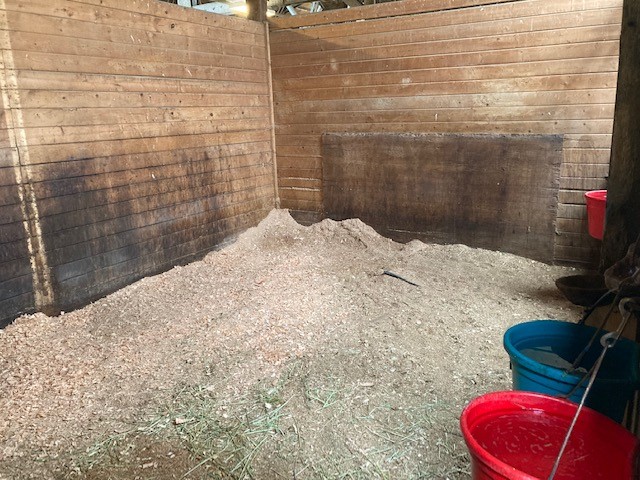
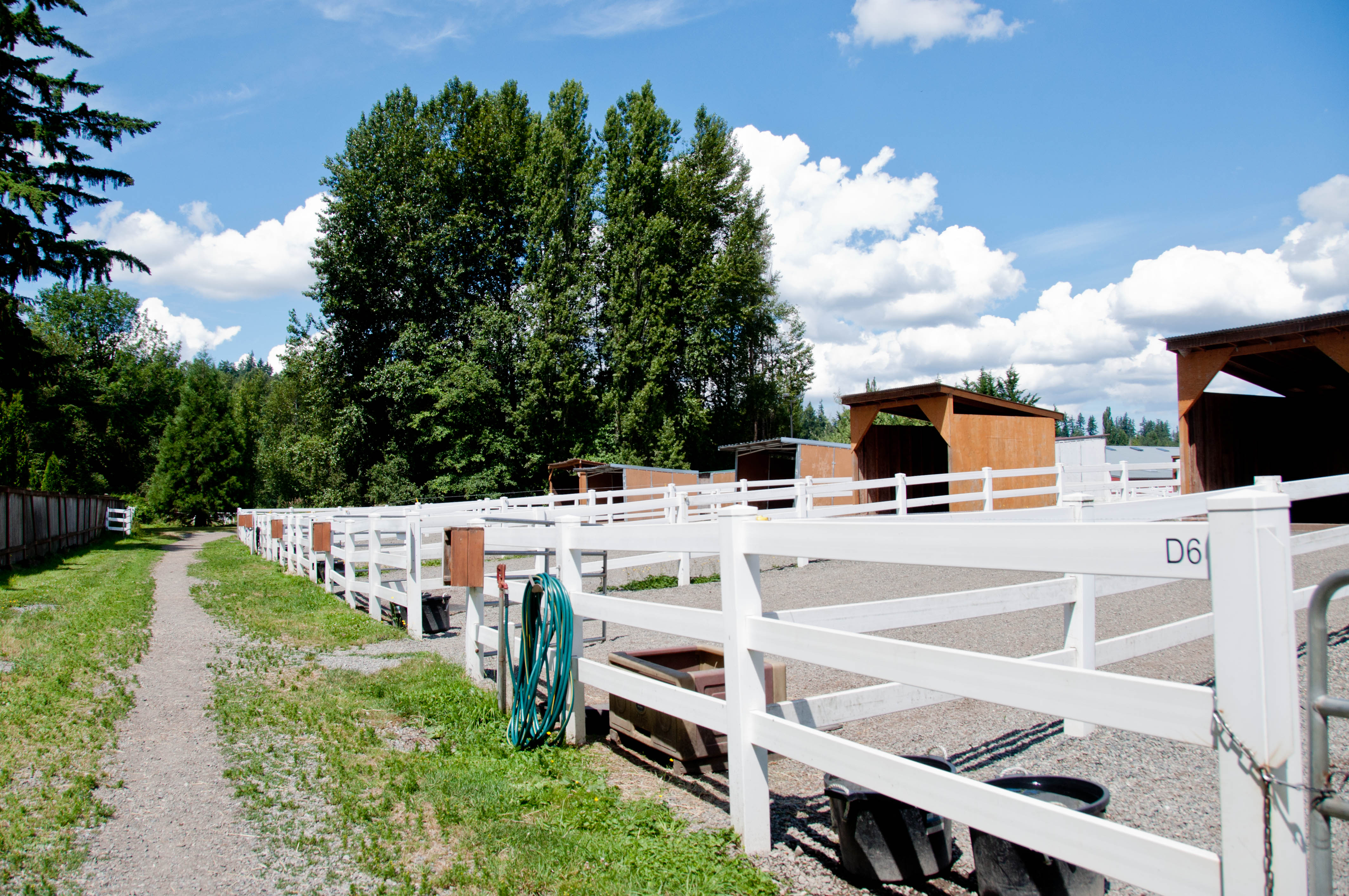
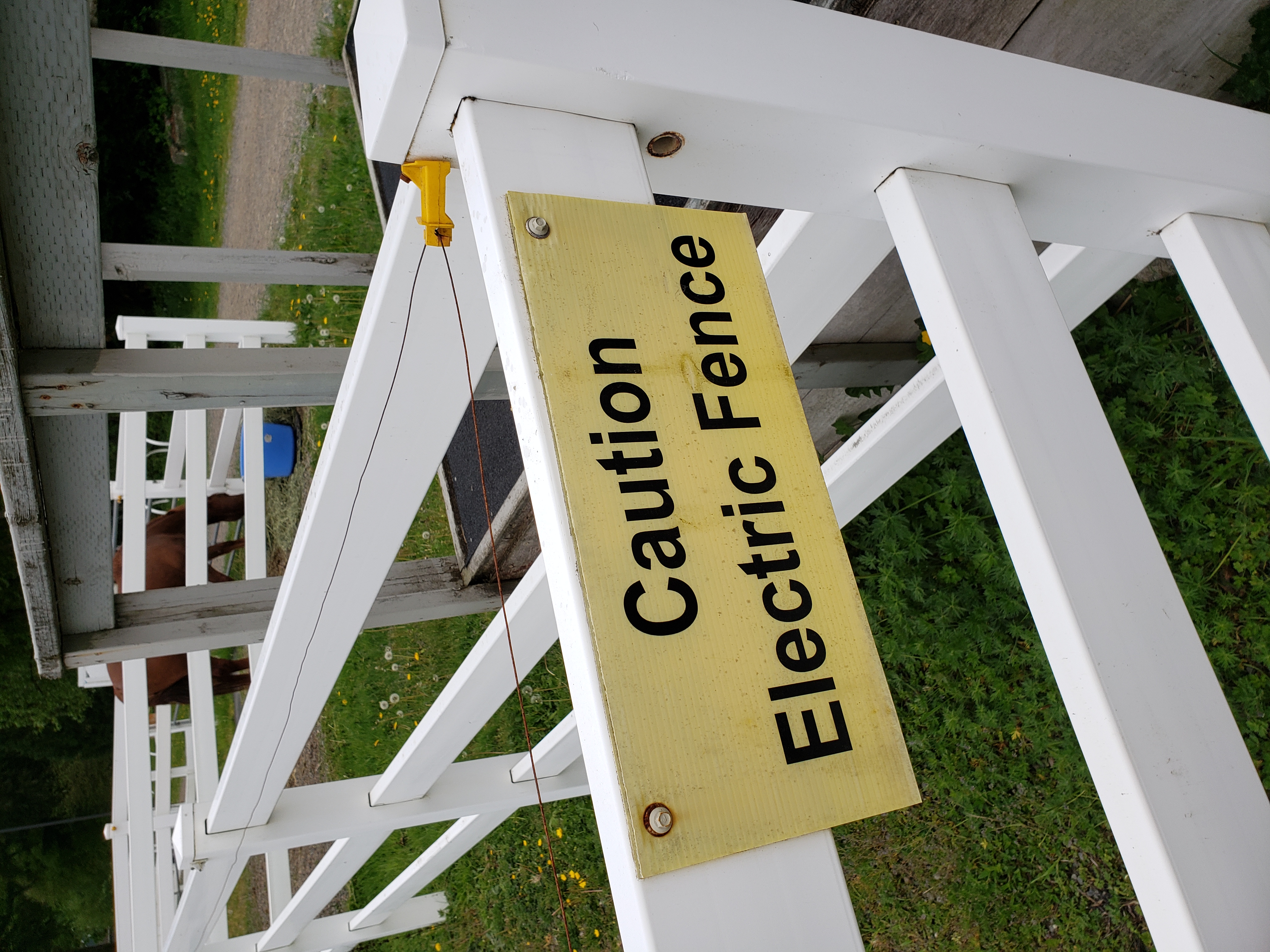

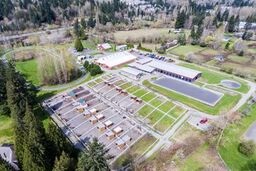
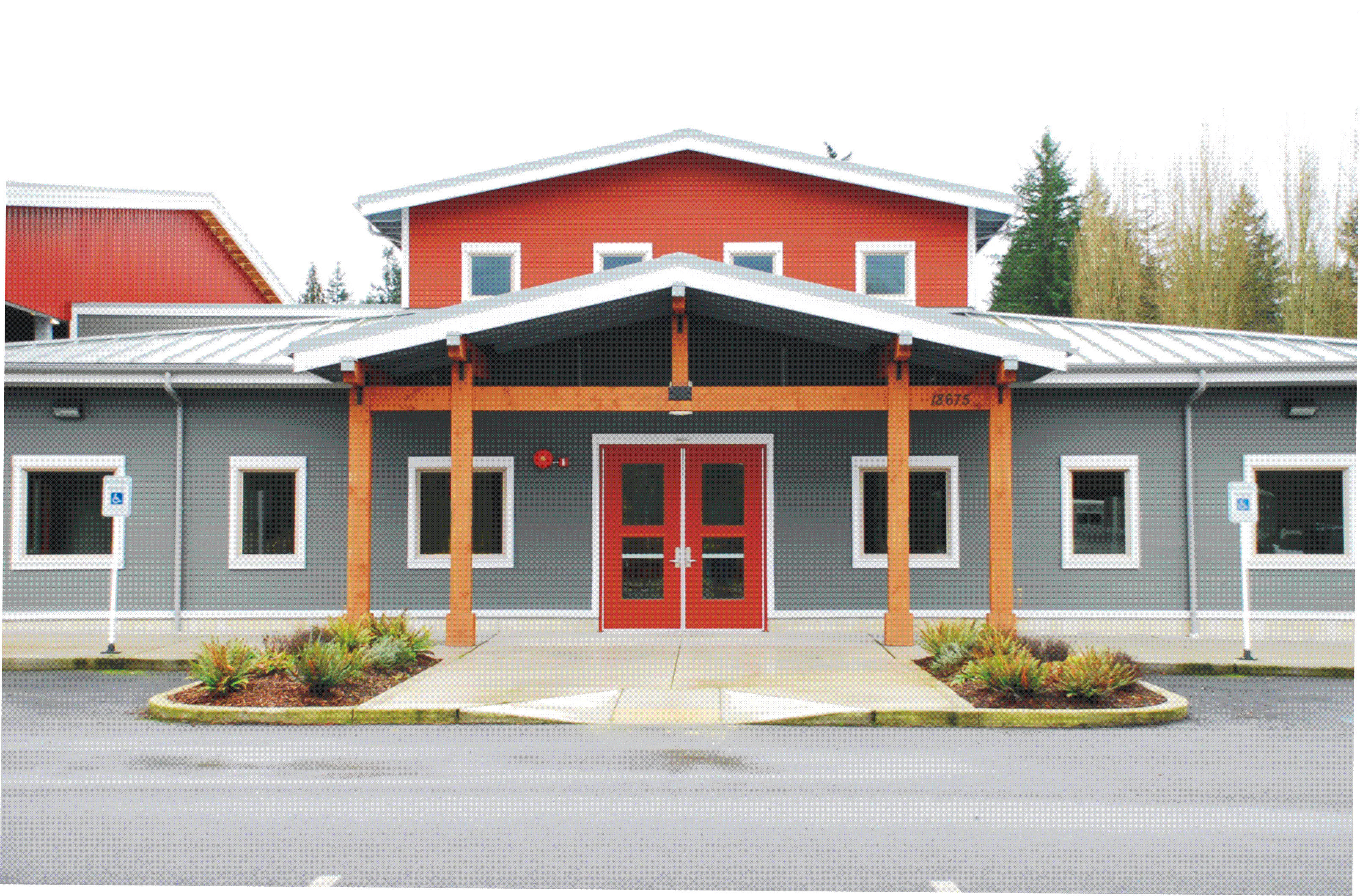
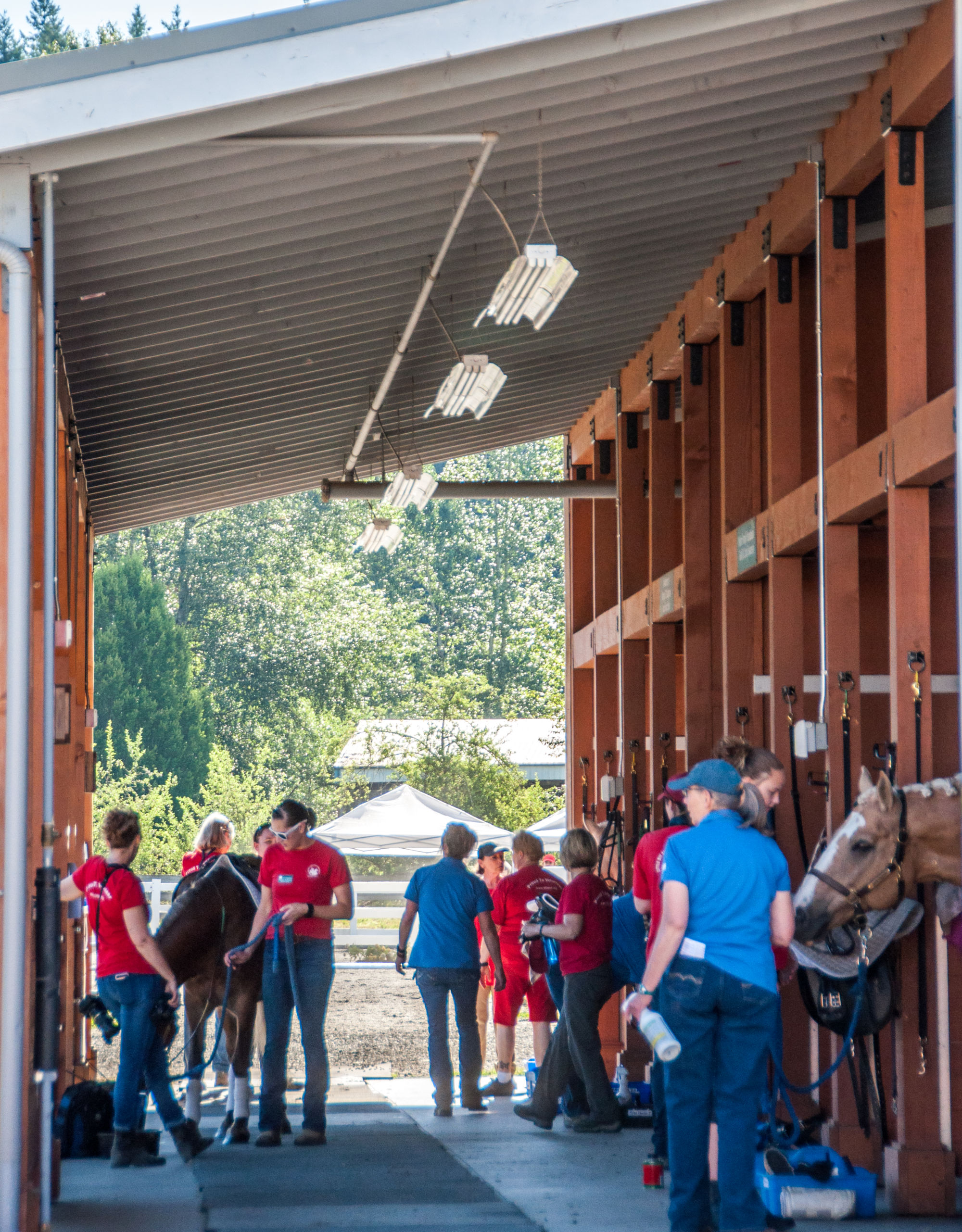
Regarding structures at this facility where horses are stalled:
Do horses have assigned stalls in the structure(s)? Yes
Do all stalls/enclosures allow horses to lie down, stand up and turn around? Yes
Is there adequate ceiling & beam height (a minimum of 12 feet above the tip of the horse's ear) when standing in all stalls/enclosures? Yes
How often are the stalls/enclosures cleaned? 6-7 Days a Week
Are floors constructed and maintained for both good drainage and traction? Yes
Is there a ventilation and circulation system in place to control temperature and prevent buildup of toxic gases? Yes
Is wiring inaccessible to horses and maintained for safety? Yes
Are fire prevention/protection measures (fire alarms, extinguishers and sprinkler systems) maintained and in good working order? Yes
Is there adequate lighting to ensure safety in all areas of facility? Yes
Are emergency contacts, including veterinarian contact information, conspicuously posted in easily accessible locations? Yes
Are human and equine first aid kits easily accessible? Yes
How many hours per day, on average, are horses stalled? 13-16
How many hours per day, on average, are horses turned out:
Equines are out 4 to 8 hours per day
Equines are out 9 to 15 hours per day
The following describes the pastures at this facility:
A dedicated staff person(s) is responsible for pasture management
All pastures are fenced to prevent escape or injury
Electric fencing is used; electric wires or tape fence are visibly marked
Fencing checks, such as broken or missing planks, loose fence posts, exposed or loose nails, detached wires, etc., are done regularly
Pastures are rotated
This facility does not have pastures where equines can graze on pasture grass
This facility has a written plan in place for pasture management, which includes guidelines for seeding, fertilizing, irrigation, mowing, dragging, harrowing, manure removal, removal of debris, the control of poisonous plants, and a schedule for cleaning
Barbed wire is used for fencing
Pastures have natural protection for equines (i.e., trees)
Pastures have man-made protection for equines (i.e., shelters)
The following describes the turnout areas other than pastures at this facility:
This facility has a written plan in place for the maintenance of turnout areas, which includes a schedule for cleaning, manure removal, and dragging
A dedicated staff person(s) is responsible for the maintenance of turnout areas
All turnout areas are fenced to prevent escape or injury
Electric fencing is used; electric wires or tape fence are visibly marked
Turnout areas have man-made protection for equines (i.e., shelters)
Fencing checks, such as broken or missing planks, loose fence posts, exposed or loose nails, detached wires, etc., are done regularly
This facility does not have turnout areas
Barbed wire is used for fencing
The following policies and procedures are in place at the facility to restrict public access and to keep horses safe:
The property owner, staff member or caretaker lives on the premises and ensures that public access is restricted and is responsible for the security of the facility and equines
Equines are checked overnight
No Trespassing signs are posted
Authorized Personnel Only signs are posted
Entrance gates are locked at night
Visitors are only permitted at specific times
Visitors are only permitted in specific areas
The property is fitted with motion lights
The perimeter of the property is fully fenced
A security guard is present at night
By Appointment Only signs are posted.
Hold Harmless signs are posted
The property is fitted with a security system monitored by police or a professional service
The property is fitted with a security system that is monitored internally by staff (or the property owner)
Equine Care/Emergency Preparedness: Dunmire Stables (*Main) 2024 and 2023 This section is required.
Horse Health Care/Barn Management Records: What system is used to collect and store health/horse care records?
Notebook or equivalent (technology not utilized)
Onsite computer with onsite backup storage system
Onsite computer with cloud-based backup storage system
Our organization utilizes a software application to maintain records
The organization utilizes its own system to maintain records
The following items are consistent with our feed management plan and practices:
Equines are provided with individualized feeding plans, including supplements, according to age and any health issues
Feed plans are determined in consultation with a veterinarian
Supplement plans are determined in consultation with a veterinarian
Equines are fed in individual stalls
Staff and volunteers are trained in proper feed measurements and protocols and observed periodically to ensure they are feeding correctly
The feed chart is centrally located and updated as needed
The area(s) where hay, feed, grain, and supplements are stored are kept clean, free of debris and chemicals, and protected from weather and other animals in rodent-proof and mold-proof containers and grain bins
Feed, supplements and hay types are clearly labeled
Water sources, i.e., buckets, troughs, automatic waterers, etc. are kept clean, free of debris and chemicals, and protected from weather and other animals
Medications are kept in a locked, climate-controlled area
Equines are fed in groups
Do horses have access to clean drinking water at all times? Yes
Hoof Care: How often is hoof care provided for each equine? Every 4-8 weeks and when an issue arises
Dental Care: How often is dental care provided for each equine? Annually and when an issue arises
Horse checks: How often are equines visually and physically checked by personnel at the facility? Every day or 6 days a week
Parasite Control: Our organization has the following worming protocols in place: (Check all that apply
The protocol for each equine is determined in consultation with a veterinarian
Fecal testing is performed prior to the use of a de-wormer.
Fly/Insect Control: What remedies are used to control flies and insects?
Fly parasites
Feed Through Products
Fly Traps and Tapes
Fly Spray Repellent
Fly Masks
Fly Sheets
Fans
The following represent the biosecurity practices in place at facility:
Our organization follows the biosecurity guidelines of our veterinarian
Sick, affected and/or quarantined equines do not have contact with other equines or other animals
The organization has a written biosecurity plan
All staff are trained in best practices related to biosecurity
All volunteers are trained in best practices related to biosecurity
A specific individual is assigned to care for sick, affected and/or quarantined equines
Sick, affected and/or quarantined equines are cared for last if the caretaker must also care for healthy equines
Sick, affected and/or quarantined equines do not have contact with other equines or other animals
Restricted access signs are posted at primary points of access to sick, affected and/or quarantined equines
Hand sanitizers and footbaths are available at all primary points of access to sick, affected and/or quarantined equines
Stalls, aisle ways, and common areas are disinfected after conclusion of the quarantine
Trailers/vans used by sick, affected and/or quarantined equines are cleaned and disinfected after each use and cleaning takes place away from where equines are sheltered
Equipment used by sick, affected and/or quarantined equines is not shared and is clearly labeled
Shared equipment used by sick, affected and/or quarantined equines is cleaned of organic debris and disinfected after each use
Latex gloves are worn when working with sick, affected and/or quarantined equines
Our organization follows the AAEP's Biosecurity Guidelines and/or the UC Davis Biosecurity Guidelines
Manure and bedding from sick, affected and/or quarantined equines is disposed of in specific areas designated for infectious materials - not put in open air piles, and not spread on pastures
Personnel are required to leave the facility (or shower and change clothing) after working with quarantined equines
Equines are not quarantined on arrival.
Additional information on biosecurity:
In the event of a biosecurity risk, a specific written biosecurity plan is developed based on the nature of the risk at the time. This is done in consultation with our veterinary team.
The following represent the manure removal practices in place at facility:
Manure is stored in dumpster(s)
Manure is piled in an area where equines are not located
Manure is hauled, sold or given away
Our organization adheres to the manure management guidelines set by state and/or local authorities
Manure piles are covered
Manure piles are composted or spread on pastures
The following steps are taken to help staff and volunteers readily identify each horse on the property:
Equines are assigned the same stall/location each day
Name plates are located on the stall
Photos are located on the stall
Equines wear halters with nametags
A notebook or binder with photos and information on each equine is easily accessible
A map/diagram is posted showing the location of each equine with equine names and photos
Equine photos and profiles are available on the website
Staff and volunteers are provided with an information packet with equine profiles, including photos and detailed descriptions
Team leaders work with new staff/volunteers until they are able to identify the equines
Staff/volunteers are provided training on conformation, markings, colors, and breeds
Our organization has the following policies and procedures in place pertaining to tack, apparel and equipment:
Saddles are shared
Blankets, sheets and turn out apparel are fitted and utilized for each equine appropriate to the equine's needs and the weather conditions
Blankets, sheets and turn out apparel are cleaned regularly as needed
Tack is cleaned only when needed
Tack is inspected for overall working condition before each use by trained personnel
Tack is assessed for fit before each use by trained personnel
Tack is assessed for fit by trained personnel when an equine's body condition changes
Tack is assessed for fit by trained personnel when an equine's disposition changes
This facility enlists the services of a professional saddle fitter at least once a year
Assigned tack is clearly labeled
Tack is stored in a climate-controlled location
Helmets are shared
Helmets are cleaned/disinfected after each use
Helmets are replaced after a fall
Helmets are replaced at least every five years.
All equines have specifically assigned tack, apparel and equipment that is not shared
Saddle pads are shared
Bridles are shared
Bits are shared
Blankets are shared
Sheets are shared
Turnout apparel is shared
Halters are shared
Tack is cleaned after each use
Tack is cleaned weekly
No equines are ridden; not applicable.
Emergency Preparedness: Dunmire Stables: *Main This section is required.
The following plans, policies, and procedures are in place at the facility to handle emergencies and address weather related issues, fire safety procedures, and/or any additional hazardous scenarios the facility could potentially experience:
Emergency procedures are posted prominently
Emergency phone numbers are posted prominently
The facility owns or has access to a generator
The facility maintains at least two weeks of hay, feed, shavings and medications
The facility collects and maintains medical information from staff, volunteers, and clients
The facility maintains appropriate liability and/or workers' compensation insurance
All staff/volunteers are briefed regularly on emergency preparedness/safety procedures
The organization has a written emergency preparedness/safety plan (EPP)
Local fire department and/or the state's emergency planning department procedures
Medical emergencies for clients, staff, and volunteers
Medical emergencies for equines
Evacuation plans
Power outages
Fire
Natural Disasters - thunderstorm, hurricanes, earthquakes, tornados, etc
Protocols to notify emergency personnel
Building/facility exit plans
Terrorist attacks
The facility follows the specific procedures to help PREVENT emergency situations:
Smoking is strictly prohibited
NO SMOKING signs are posted prominently
Hay is stored away from permanent or temporary structures where equines are stalled
Permanent or temporary structures where equines are stalled are kept free of dust, cobwebs, trash, cleaning rags, and other flammable items
Aisles and doorways are kept clear
Heaters with automatic shutoff settings are used
How often are the following checked or performed?
Fire Extinguishers are checked: Annually
Smoke detectors are checked: Annually
Electrical Systems are checked: Annually
Fence lines are checked: Daily
Turnout Areas are checked: Daily
Sprinkler systems are checked: Semi-annually
Fire drills are conducted: Not at all/NA
Review of safety protocols with staff are conducted: Annually
Review of safety protocols with volunteers are conducted: Annually
The Emergency Preparedness Plan is reviewed and updated: Annually
Equine Transportation
2-horse van/trailer with truck:
0 Owned onsite 0 Access onsite but not owned 2 Access offsite;
3-horse van/trailer with truck:
1 Owned onsite 0 Access onsite but not owned 1 Access offsite;
4-horse van/trailer with truck:
0 Owned onsite 0 Access onsite but not owned 0 Access offsite;
6-horse van/trailer with truck:
0 Owned onsite 0 Access onsite but not owned 0 Access offsite;
8-horse van/trailer with truck:
0 Owned onsite 0 Access onsite but not owned 0 Access offsite;
10-horse van/trailer with truck:
0 Owned onsite 0 Access onsite but not owned 0 Access offsite;